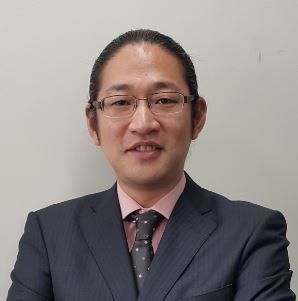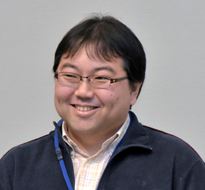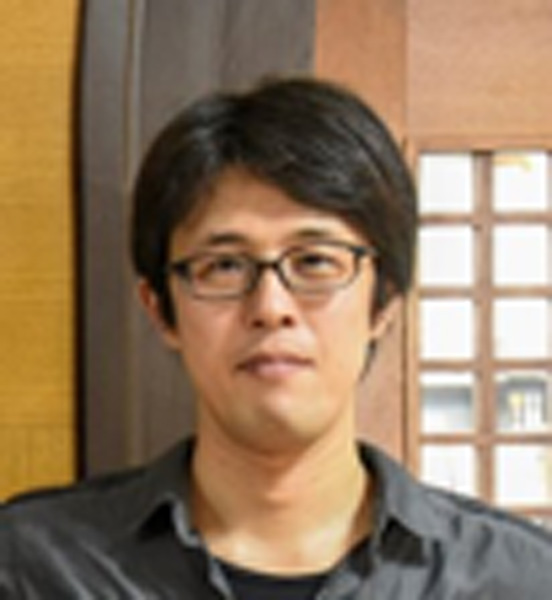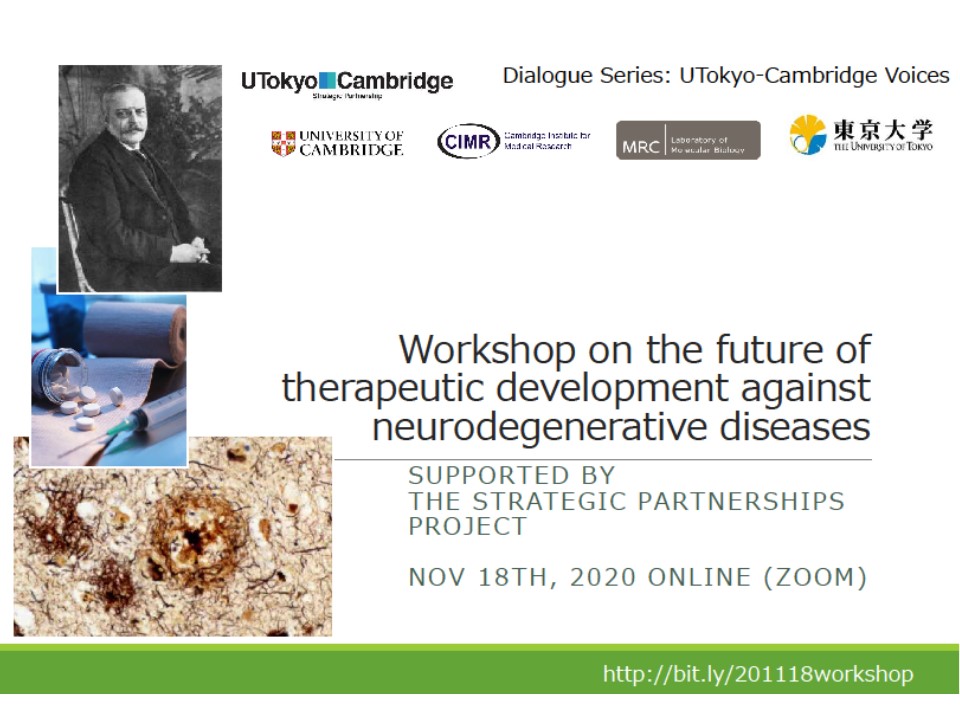Moderator / Commentator

Taisuke Tomita
Professor, Graduate School of Pharmaceutical Sciences
The University of Tokyo
Taisuke Tomita is a Professor in Laboratory of Neuropathology and Neuroscience, Graduate School of Pharmaceutical Sciences of the University of Tokyo (UTokyo), whose research field interests include neurology, psychiatry, cell biology, neuroscience, and molecular biology. Prof. Tomita has received numerous honors and awards for his work, including Erwin von Balz prize in 2011, Basic Research award from the Japan Society for Dementia Research in 2013, a NAGASE Science and Technology Foundation Award in 2015 as well as SHIMAZDU young researcher award in 2018. Prof. Tomita is a director of the Japan Society for Dementia Research (from 2017).
Prof. Tomita received his B.S. (1995), M.S. (1997), and Ph.D. (2000) in Pharmaceutical Science from UTokyo, and has been a Visiting Scientist at Washington University in St. Louis where he conducted research on Notch biology under a Japan Society for the Promotion of Science (JSPS) postdoctoral fellowship for research abroad (2004-2005). He first held the position of Instructor at the Graduate School of Pharmaceutical Sciences, UTokyo (1997-2003), then becoming an Assistant Professor (2003-2006), Associate Professor (2006-2014), and was appointed to his current position of Professor in 2014. He is also appointed to an Adjunct Professor in Laboratory of Brain and Neurological Disorders, Graduate School of Pharmaceutical Sciences, The University of Tokyo, Japan (from 2017).
Speakers

Peter St. George-Hyslop
Professor, Cambridge Institute for Medical Research
University of Cambridge
St George-Hyslop has made major contributions to the understanding of the functional genomics of multiple human neurodegenerative diseases including Alzheimer disease (AD), frontotemporal lobar degeneration (FTLD) and amyotrophic lateral sclerosis (ALS). He has played a major role in cloning of genes associated with susceptibility to these disorders including APP, APOE, PS1, PS2, SORL1, TREM2 and several others. He has built protein structural, molecular, cellular and animal models of these disorders, and used them to explore candidate therapeutics including early work on anti-Abeta vaccines, inhibitors of Abeta aggregation, inhibitors of gamma-secretase, and microglial modulators such as CSF1R inhibitors. His work on intrinsically disordered low complexity such as FUS and ANXA11 have led to an understanding of how these proteins contribute to the formation of membraneless intracellular organelles, particularly ribonucleoprotein granules that mediate new protein synthesis in dendrites and axon terminals. It is also improved our understanding of how missense mutations and abnormal post-translational modifications in these intrinsically disordered proteins disrupt new protein synthesis in axons and dendrites, and leads to FTLD and ALS.
He is currently University Professor in the Division of Neurology, Department of Medicine at The University of Toronto, and Professor of Experimental Neuroscience at the University of Cambridge. He has received numerous academic honours including election to the Royal Society of London, Royal Society of Canada, US National Academy of Medicine, the Order of Canada and the UK Academy of Medical Sciences, as well as the Howard Hughes International Scholar Award, Potamkin prize, Metropolitan Life Award, Dan David Prize, Ryman Prize, Zenith Award and Royal College of Physicians of Canada Gold Medal in Medicine.

Tadafumi Hashimoto
Project Associate Professor of Neuropathology
The University of Tokyo
Tadafumi Hashimoto is a Project Associate Professor of Neuropathology at the University of Tokyo. He was graduated from the University of Tokyo, and trained in neurobiology and neuropathology at the University of Tokyo and Massachusetts General Hospital. He has contributed to the research of Alzheimer’s disease and Amyotrophic Lateral Sclerosis. He has elucidated the molecular mechanisms of Ab oligomerization, fibrillization and deposition in the Alzheimer’s brains. He has also reported the pathophysiological mechanisms of ALS-related proteins including TDP-43 and FUS.

Michel Goedert
Honorary Professor, Department of Clinical Neurosciences
University of Cambridge
Michel Goedert is a Programme Leader, MRC Laboratory of Molecular Biology (since 1988) and Honorary Professor of Experimental Molecular Neurology, Department of Clinical Neurosciences, University of Cambridge. He obtained an M.D. from the University of Basel and a Ph.D. from Cambridge University. He then trained as a postdoc at Biozentrum of the University of Basel and MRC Laboratory of Molecular Biology. He has contributed to the research of abnormal filamentous inclusions found in many human neurodegenerative diseases, including Alzheimer’s and Parkinson’s. The formation of filaments or their mere presence is believed to result in the propagation of inclusions and neurodegeneration. His work showed that the intracellular filaments of these diseases are made of either tau or alpha-synuclein. In collaboration with Sjors Scheres, his group is using electron cryo-microscopy to determine the structures of pathological amyloid filaments from the brains of patients with tau and alpha-synuclein proteinopathies. He has so far determined the structures of tau filaments from cases of Alzheimer’s disease, chronic traumatic encephalopathy, Pick’s disease and corticobasal degeneration. He also determined the first structures of brain-derived alpha-synuclein filaments, from multiple system atrophy. These structural insights will inform understanding of how diseases start and how they may be diagnosed and treated. He is a fellow of the Royal Society of London, a member of European Molecular Biology Organization (EMBO), a fellow of U.K. Academy of Medical Sciences a member of Academia Europaea. He has received numerous academic honours including, Potamkin prize, Metropolitan Life Award, Prix Lions, European Grand Prix for Research, the Brain Prize, the Royal Medal of the Royal Society and the Rainwater Prize for Outstanding Innovation in Neurodegenerative Disease Research.

Airi Tarutani
Project Assistant Professor, Graduate School of Pharmaceutical Sciences
The University of Tokyo
Airi Tarutani is a Project Assistant Professor in the Laboratory of Neuropathology and Neuroscience in the Graduate School of Pharmaceutical Sciences at the University of Tokyo. She was graduated from Tokyo Metropolitan University and trained in Tokyo Metropolitan Insitute of Medical Science as a postdoctoral fellow. She has worked on the prion-like proteins observed in the brain of patients with neurodegenerative diseases, such as α-synuclein and tau, and cell-to-cell transmission of abnormal proteins.

Kunimichi Suzuki
Visiting Scientist in Radu Aricescu laboratory in Neurobiology division at MRC-LMB
Kunimichi Suzuki is a Visiting Scientist in Radu Aricescu laboratory in Neurobiology division at MRC-LMB. He was graduated from the University of Tokyo and trained in Keio University School of Medicine as a postdoctoral fellow. He works on the research about the synapse organizing molecules such as neurexins, cerebellins, and neuroligins, to elucidate their regulatory mechanism mediated by the proteolytic cleavage and to develop structure-guided artificial synapse organizers as therapeutic tools to restore synapses in the disease model mouse.

Yukiko Hori
Lecturer in the Laboratory of Neuropathology and Neuroscience
The University of Tokyo
Yukiko Hori is a Lecturer in the Laboratory of Neuropathology and Neuroscience at the University of Tokyo. She was graduated from Univ. of Tokyo and trained at National Center for Geriatrics and Gerontology and Massachusetts General Hospital as a postdoctoral fellow. She has continued to research on the pathological molecular mechanisms of Alzheimer disease, especially focusing on amyloids, which are causative proteins of disease. She has studied the involvement of familial disease mutations and genetic risk factors in amyloid formation, and clearance approaches of amyloids in disease model mice using antibodies and small compounds as a therapeutic strategy.

